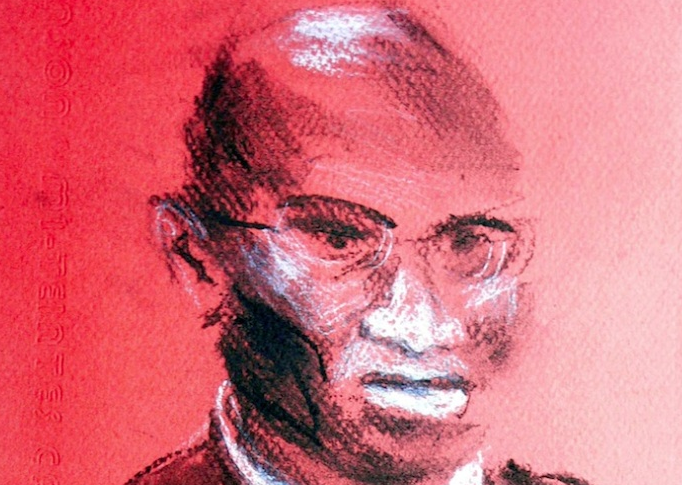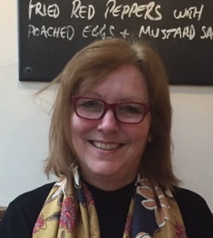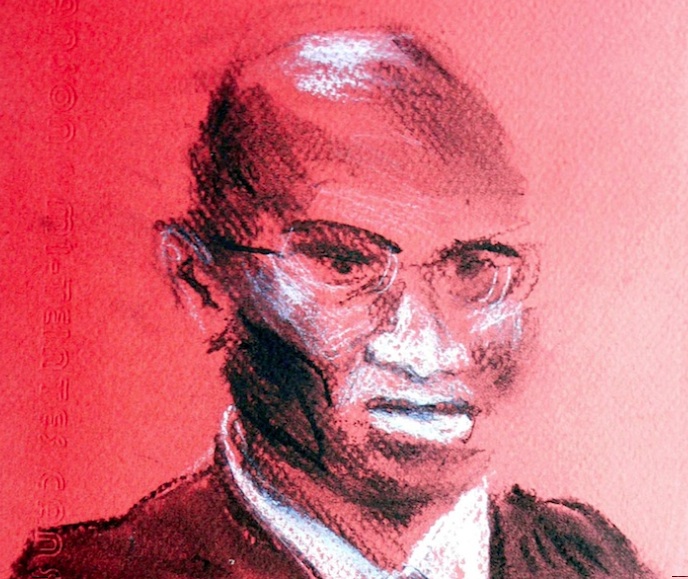Is innocence work over in the UK? That is a question on the Wrongful Convictions Blog (here) posed by Carole McCartney, who set up an innocence project at Leeds University in 2005 and has long commented on miscarriages of justice in the UK and internationally. She is referring to one consequence of Michael Naughton’s recent unilateral decision that the Innocence Network UK (INUK) would no longer have university members. That question hints at a real and pressing problem for those of us with “innocence projects”.
What’s in a name?
A lot, it seems. The name ‘innocence project’ is trademarked by The Innocence Project in New York. While INUK was operating as a membership organisation, albeit an undemocratic one, member universities were permitted to use the name. As regards non-INUK members, such as Cardiff Law School Innocence Project, it seems that an international blind eye was turned as no UK project was ever challenged about its use of the name.
Others have commented on some consequences of the changes to INUK (here). Some universities are already dropping the name ‘innocence project’ to avoid the trademark problem.
Both Sheffield and Sheffield Hallam have done so recently, but are continuing with their casework. Others planning to start a new project in this coming academic year, for example Essex University, will no doubt be having urgent discussions about names. Some universities run criminal appeals clinics that are not innocence projects, for example Birmingham, so are unaffected.
Monitoring and quality assurance
Reacting to this fallout, on Cardiff’s behalf (although the outcome will affect many others) I am in discussion with The Innocence Project in New York, which is keen to try to find a solution that will allow them to license the continued use of the name in the UK, subject to assurances as to quality. That is difficult, if not impossible, to achieve as things currently stand. INUK formerly asked members to file annual reports. Some complied; others didn’t. For some who did, it was frustrating that this information seemed not to be disseminated so that common issues could be identified and discussed.
Bud-nipping may well have been impossible, as many of us struggled with various seemingly insurmountable problems that remained collectively unaddressed partly because of the absence of a genuine climate of collaboration. But it was also partly, I think, due to over-commitment by some, coupled with an element of burying heads in sand caused by general ‘overwhelmed-ness’ that can beset this work. In any event, there was never any democratic mandate or qualification for anyone to oversee national quality; there was only ever a self-appointed overseer, a lack of transparency of process, goalpost moving, and no accountability other than the ultimate sanction of membership not being renewed, based on the decision of one person without any wider consultation or any ‘appeal’ process. A huge amount of time was invested by a small number of people at tremendous personal sacrifice, but there was never any core funding or democratic constitution to ensure sustainability.
So, what IS in a name?
One way in which we could secure our continued use of the innocence project name at Cardiff is to join the international Innocence Network in our own right. That is what Michael Naughton is inviting people to do. However, herein lies a crucial problem. Many UK universities probably do not meet the criteria for membership. In particular, the sticking point for many, if not most, is the eligibility of “Projects based at law schools or other educational institutions, provided that the host institution has committed at least twenty hours per week of at least one faculty member’s time to supervise students on clinical work and oversee the program”. This 20-hour requirement would be problematic for many. So unless our international network colleagues decide they will apply the criteria generously, then this may be a closed door for most. Cardiff appears to be one of a tiny number that would be eligible on current criteria. But that then throws up a different but related problem, meaning we have to decide whether, in fact, we wish to continue to use the name innocence project. If most UK universities don’t meet the criteria and therefore don’t become members, there could conceivably be just two members from the UK: 1) the Innocence Network UK (INUK) which has been a member for some time, and 2) Cardiff Law School Innocence Project.
Our concern is that this would give rise to the perception of a two-tier UK membership, which is probably an accidental and incidental outcome of the INUK changes. Outsiders would naturally think that INUK was the principle member, as a representative UK network (the clue being in the name) and that all other members were just single project members. This has arguably happened in past years when Leeds was an independent member of the international network. But that was when the INUK actually had university members even though it was never a democratic organisation. Now, INUK’s status has changed. It is in effect Michael Naughton and Bristol, working with supporters. It is undoubtedly doing good work, but it is hugely misleading to retain the name INUK as a member of the Innocence Network in the current circumstances. No-one would doubt the massive personal investment that Michael has made in INUK, and he should rightly be proud of its many achievements. But this situation needs to be resolved in the interests of clarity and transparency. In my view, some of the problems that INUK has faced in past years have resulted from issues arising but diplomatically going unchallenged.
There is good reason for wanting change for INUK, as it was unsustainable, but a discussion between INUK members before the final decision was made would have been beneficial. Aside from issues of “quality control” (those involved in miscarriages of justice work in the UK do so with different levels of effectiveness and, probably, competence) the CCRC and others have commented on the low numbers of applications from innocence projects. We all know how extremely difficult this work is, and we’ve certainly learned valuable lessons at Cardiff over nine years. Some universities are struggling to the point that, prompted by the INUK changes, they may now take stock and decide, in the interests of both students and clients, to move to a less challenging area of real-client work. We often see the phrase “student led” for projects in the pro bono arena. It is fine in principle, and admirable in many cases, for students to take a lead. But innocence project work needs a staff member to have the time, experience and commitment to getting to grips with a case too. Students can do fantastic work, but that has to be fully supported in a meaningful way by staff, whose time needs properly to be recognised by their employers – university financial rein-holders, please take note.
The future for Cardiff and other university innocence projects?
Cardiff’s project is the busiest in the UK as regards submissions to the CCRC, which is the bread and butter of innocence work. I will soon be seeking updated data on this, but having just submitted another two cases this summer, it appears that Cardiff is responsible for over 50% of submissions from UK universities. This hasn’t happened by accident. We can only achieve this because Cardiff University has invested generously and consistently in our project.
We are fortunate to have the expertise and dedication of Dr Dennis Eady, a well-respected expert on miscarriages of justice with over 20 years at the coal face. Without Dennis, our project could not function as it does. Once the dust has settled on this change to INUK, it may be that a welcome consequence will be that some universities decide that innocence projects aren’t for them.
That would be a positive outcome and Michael Naughton can rightly congratulate himself on being able to attract such a large number of universities to this most difficult area of work, even if now becomes a natural time for numbers to reduce and consolidate. Arguably the UK will benefit from a more streamlined, less populated criminal appeals university landscape. It should be about quality, not quantity.
Cardiff as an Innocence Project or a Justice Project?
We have been the Cardiff Law School Innocence Project for nine years. Whether we continue with this name depends firstly on whether we are permitted to use it either by joining the international Innocence Network, or if we can find an alternative solution directly with those in New York. If we are so permitted, we will have an agonising discussion about whether we want to continue to use that name.
‘Innocence project’ has a certain sexy ring to it and students queue up to commit to the concept. But innocence project work has not been immune from controversy (for example, here) over its ten-year lifespan in the UK. The name comes with its own baggage anyway: one common misconception is that we naively believe that everyone who claims to be innocent is so. It has also been subject to a degree of confusion when missives sent out in the name of INUK have in fact been the view of one person rather than a group of universities, and that has caused a different set of issues.
Whatever we end up being called at Cardiff, we will be doing the same work based on the same principles. Others are entering this arena, and that is welcome in view of the demise of criminal legal aid.
The Centre for Criminal Appeals (CCA) operates differently to law firms and to innocence projects. Even before the end of INUK as a member organisation, some universities were in discussions with the CCA about a collaboration that would test the viability of a different model of criminal appeals casework involving students. Only a small number of universities are involved for now because it needs to operate as a pilot before any thought can be given to if, or how, it might effectively be rolled out to include more universities. This is potentially a model that would learn from INUK’s checkered history and from issues that arise for university casework organisations. It would put in place procedures to ensure a quicker turnaround of cases under the supervision of a qualified lawyer shared between various academic institutions.
So, will Cardiff’s future be as an innocence project, a criminal appeals unit or a justice project? I suppose that will partly depend on how the current version of INUK would answer the question: when is a network not a network? Whatever the response to that, I would hope that those of us involved in university criminal appeals work under various labels can work out between ourselves how we can best communicate with each other to share ideas and issues by way of mutual support, in this era of new challenges.








